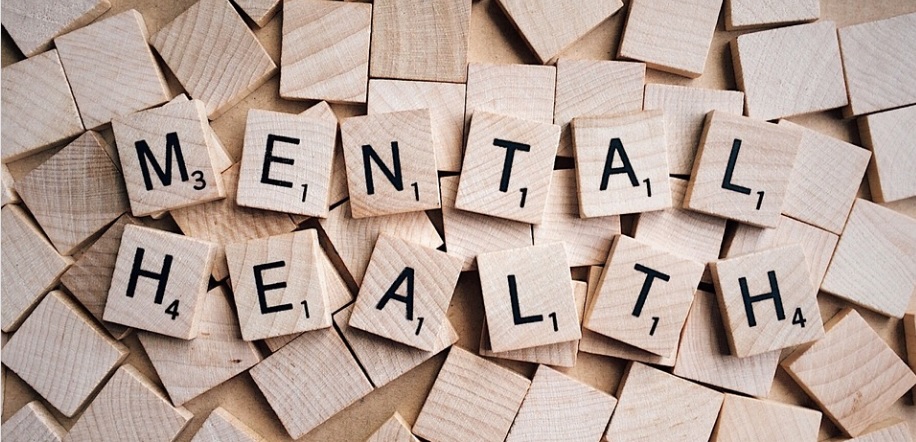
What we consume affects our emotions, thoughts, and behaviours. With a recent survey revealing that more than 1 in 6 people encounter a mental health issue each week, there has never been a greater need for effective approaches to understanding and enhancing mental health.
Consume the proper ratio of fats. Your brain requires healthy fats to function well. They are present in olive oil, rapeseed oil, nuts, seeds, oily fish, avocados, milk, and eggs, among other foods. Trans fats, which are commonly present in processed and packaged foods, can be detrimental to your mental and cardiovascular health.
However, science is progressively revealing the relationship between nutrition and mental health and giving data to justify the use of dietary therapies. Consequently, nutritional psychiatry is a developing field of study that investigates the role of diet in the onset and treatment of mental illness.
Consequently, nutritional psychiatry is a developing field of study that investigates the role of diet in the onset and treatment of mental illness. The landmark SMILES Experiment of 2017 was a randomized controlled trial (the gold standard of scientific research) that examined individuals with serious depression.
How can diet effect mental health?
But does it also effect your mental health and mood? Certain meals include nutrients or substances that alter how the brain functions, thereby affecting your mood.
Food allergies are a pain, especially if you’re allergic to a common ingredient found in many restaurant dishes and takeout, but for the vast majority of people, they just cause an unsettled stomach or the need for an EpiPen. However, recent research indicates that there may be a link between food allergies and mental health.
For optimal mental health, it is essential to consume copious amounts of water. Water is required for the production of neurotransmitters, the chemicals that send impulses between brain cells, and hormones that regulate body and brain processes. Even minor dehydration can cause irritability and impair cognitive performance.
Avoiding processed foods contributes to the body’s natural probiotic ecosystem. Paying close attention to how different foods affect your emotions (thinking how your body will react the following day) also contributes significantly to your mental wellness. Consuming a healthy diet for around two weeks will improve cognitive performance.
What foods should I consume to improve my mental health?
In particular, dark green leafy veggies are brain-protective. In addition to being excellent brain foods, nuts, seeds, and legumes such as beans and lentils are extremely nutritious.
But that is also a benefit: you don’t have to make really strict dietary modifications or constantly eat one exact food every day. To boost your mental health, simply consume more plant-based foods, fruits, and whole grains, with an emphasis on seafood.
To boost your mental health, simply consume more plant-based foods, fruits, and whole grains, with an emphasis on seafood. In fact, a study published in the journal BMC Research Notes in December 2020 clearly confirms this notion.
A citrus-rich diet can delay cognitive decline and reduce the risk of acquiring dementia by as much as 23 percent. Nuts. Nuts are among the finest meals for enhancing cognitive function. Is there an association between diet and mental health? However, the precise association between food, inflammation, and mental health changes is not fully established. The gut microbiota, sometimes referred to as the gut microbiome, may also be influenced by the diet. Ongoing research has established a clear connection between intestinal health and cognitive performance.
The two primary issues posed by researchers about the role of nutrition in mental health.
Does diet aid in the prevention of mental health conditions?
and, Are nutritional therapies effective in treating these conditions? Multiple observational studies have demonstrated a correlation between diet quality and the incidence of depression.
The first is investigating specific dietary trends that can affect mental health. The second objective is to investigate individual nutrients on a biological level and how particular diets affect brain chemistry. The third area of study is the connection between gut and brain health.
The gut microbiota, sometimes referred to as the gut microbiome, may also be influenced by the diet. Ongoing research has established a clear connection between intestinal health and cognitive performance.
What is nutritional psychiatry and how can it help?
Here is the information you need. What is dietary psychiatry? The objective of nutritional psychiatry is to responsibly incorporate food into mental health therapy, notes Drew Ramsey, MD, a psychiatrist, farmer, and Well+Good Council member based at Columbia University.
Numerous research that deepen our awareness of the connection between nutrition and mental health lend credence to the burgeoning area of nutritional psychiatry. Consequently, several psychiatrists now incorporate nutrition into their treatment strategies for a variety of mental health issues.
Nutritional psychiatry: The improvement of mental health by diet Does what we consume affect our mental health? Accumulating evidence suggests that this may be the case and that diet and nutrition are not only essential for human physiology and body composition, but also have substantial influence on mood and mental health.
Typically, food psychiatrists first complete a residency in mental health before pursuing additional nutritional degrees. Look for mental health specialists who have received training in eating and nutrition from a reputed institution.
Does the food we eat have an effect on our mental health?
However, nutrition research has generally focused mostly on how the things we eat affect our physical health, as opposed to our mental health. A team of academics recently stated that for a long time, the possible influence of food on happiness and mental health was essentially disregarded.
This research has the potential to reduce the number of individuals who suffer from mental health issues such as depression, despite our inability to understand the exact mechanisms by which food may alter our mood. What exactly is Depression? Depression is a form of sickness that affects our emotions.
The outcomes were remarkable for a number of reasons. Even though the subjects did not lose weight on the regimen, their mental health improved. People saved money by consuming healthier foods, suggesting that a healthy diet may be cost-effective. Prior to the trial, participants spent $138 per week on food, on average.
The quality of your diet influences how your brain responds, much as the quality of your gasoline affects your vehicle’s performance. The brain is nourished by foods rich in vitamins, antioxidants, and minerals, which also protect it from oxidative stress.
Are food allergies associated with mental health issues?
According to a recent large-scale study, eczema, hay fever, and asthma are associated with an elevated risk of mental disorder. The findings supports earlier research and may aid clinicians in treating these patients. A new study reveals a startling link between mental health and allergies.
The results demonstrated that allergens alone, and not placebos, might cause the following symptoms: Extreme depression, anxiety, anger without a specific object, loss of motivation, and acute mental numbness. Wheat, milk, cane sugar, tobacco smoke, and eggs were the foods/chemicals that induced the most significant mental reactions.
The relationship between diet and mental health. The study, which was led by Maria Izquierdo-Pulido, PharmD, PhD, of the University of Barcelona’s department of nutrition, food science, and gastronomy, also found that children who consumed fewer vegetables, fruit, fatty fish, and other foods associated with the Mediterranean diet were more likely to exhibit ADHD symptoms,
This should not come as a surprise, however, given that the brain is likely the most fragile organ in the body, requiring up to 30 percent of all the energy we obtain from meals. Food allergies can alter the amounts of hormones and other essential brain chemicals, causing symptoms ranging from depression to schizophrenia.
Water consumption vital for mental health
Studies have demonstrated a positive correlation between water consumption and mental health conditions, but this does not imply that drinking water would miraculously improve your mental health. You should consume the proper amount of water per day to keep your body happy and functioning properly and to increase your likelihood of being healthy.
Consuming sufficient water prevents our brain from battling dehydration, helping us to think more clearly than if we allowed ourselves to become dehydrated. A component of excellent physical, emotional, and mental health is being hydrated by drinking adequate water.
According to nutritionist Uta Boellinger, good hydration is essential for health and wellness, as nearly every bodily function depends on proper water consumption. Not only does water affect your physical health, but it also affects your mental health.
Since water fuels and returns electrical energy to the body, it enables the brain to operate effectively. It also focuses on certain aspects of the mind and heightens awareness.
How to improve your mental health naturally?
- Keep a notebook to record your appreciation and accomplishments. Include three things you were thankful for and three things you accomplished each day. Begin the day with a cup of coffee. Coffee drinking is associated with lower depression rates. If you can’t drink coffee due of the caffeine, try a healthy alternative such as green tea.
- Self-hypnosis, in which the objective is to induce a relaxed, trance-like condition in response to a specific suggestion or trigger. Deep breathing exercises consist of concentrating on taking slow, deep, and even breaths. It is also essential to know when you need assistance. Psychotherapy and/or medication can be used to treat mental problems.
Take 30 minutes to walk in nature; this could be a stroll through a park or a hike through the woods. According to research, spending time in nature can raise energy, decrease sadness, and improve well-being. 30. Make an effort to soak up 15 minutes of sunlight and apply sunscreen.
Why is mental health so valuable?
1- Manage life’s stressors
2- Be physically healthy
3- Maintain positive connections
4- Contribute meaningfully to your community
5- Work efficiently
6- Realize your entire potential
What are the Top Foods for Mental Health?
SPICES THAT BENEFIT MENTAL HEALTH Saffron, turmeric (curcumin), saffron combined with curcumin, peppermint (for focus), cinnamon (for attention, ADHD, irritability).
What we know thus far can be summarised roughly as follows: Diets rich in fruits, vegetables, and unprocessed protein can improve our moods and protect us from depression, but an excess of junk food and sugar may be detrimental to our mental health. One-third of American adults consume fast food on any given day.
Since food affects mood and mood affects mental health, paying attention to the types of foods that affect your mood can aid in the improvement of your mental health as a whole. The most beneficial diets for mental health contain a variety of vitamins, amino acids, proteins, and other nutrients. For example,
Magnesium, which is found in avocados, almonds, and salmon, and vitamin C, which is found in broccoli, oranges, and kale, can both aid in anxiety reduction. Additionally, fruits and vegetables are natural providers of fibre, which can alleviate anxiety.
Can a healthy diet help a person’s mental health?
Instead of eating the same meals every day, dietitians recommend consuming a variety of foods for meals and snacks in order to obtain all the nutrients that boost cognitive function. Here are the three most important nutrients for a healthy mental diet:
A healthy diet (rich in fruits, vegetables, nuts, and legumes; moderate amounts of chicken, eggs, and dairy; and occasional red meat) is connected with a lower risk of depression. Omega-3 fats are beneficial to mental wellness.
Strong correlation exists between nutrition and mental health. As the preceding example demonstrates, a healthy diet can promote mental health, whereas an unhealthy diet can negatively affect mental health. According to studies, a poor diet can exacerbate symptoms of depression, anxiety, and other mental health disorders.
Consume the proper ratio of fats. Your brain requires healthy fats to function well. They are present in olive oil, rapeseed oil, nuts, seeds, oily fish, avocados, milk, and eggs, among other foods. Trans fats, which are commonly present in processed and packaged foods, can be detrimental to your mental and cardiovascular health.
Conclusion
On the basis of existing research, seafood is a healthy food choice and supplies essential elements that may be lacking in the diets of many people. In addition, evidence suggests that seafood-rich diets may protect against cardiovascular disease and cognitive decline. However, the manner and type of seafood consumed are significant.
Focus on consuming an abundance of fruits and vegetables coupled with meals high in omega-3 fatty acids, such as salmon, to improve your mental health. In particular, dark green leafy veggies are brain-protective. In addition to being excellent brain foods, nuts, seeds, and legumes such as beans and lentils are extremely nutritious.
Instead of eating the same meals every day, dietitians recommend consuming a variety of foods for meals and snacks in order to obtain all the nutrients that boost cognitive function. Here are the three most important nutrients for a healthy mental diet:
Depression and Stress Sugar and processed meals can cause inflammation throughout the body and brain, which may contribute to mood disorders such as depression and anxiety. When worried or depressed, we frequently reach for processed meals in pursuit of a fast pick-me-up.












